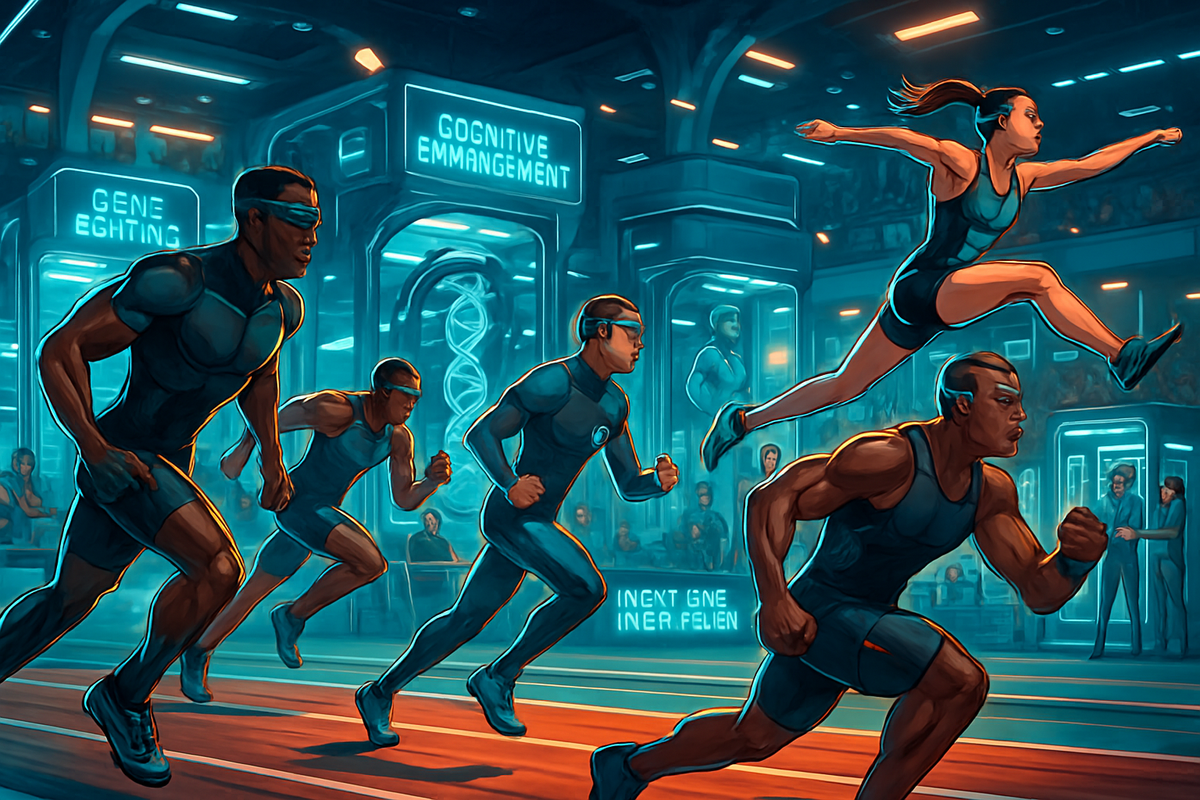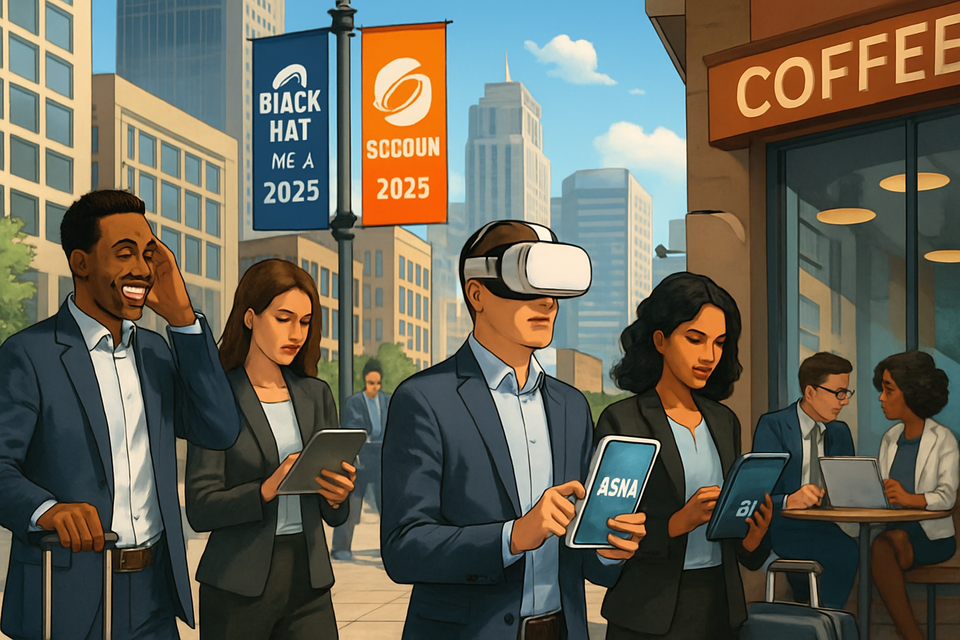The Biohacking Olympics: Inside the Rise of Enhanced Sports, Ethics, and Markets
Dive into the 'Enhanced Games,' where biohackers redefine sports with gene editing, cognitive stacks, and AI wearables, sparking debates on ethics, fairness, and what it truly means to be human.

Explore the explosive world of 'Enhanced Games'—the Olympics for biohackers—as athletes, technologists, and billionaires push the limits of human performance through gene editing, cognitive stacks, and next-gen wearables. From the new business of superhuman sports leagues to the legal, ethical, and wellness debates, this article takes you inside the labs, training camps, and global stage where the future of competition is being rewritten.
Welcome to the Biohacking Olympics
If you thought the Olympics were the ultimate showcase of human potential, buckle up. The Enhanced Games—dubbed the "Biohacking Olympics"—have arrived, and they’re flipping the script on what it means to be an elite athlete in 2025. Picture a global stage where gene-edited sprinters line up against neural-linked swimmers, and cognitive-enhanced chessboxers duke it out with the help of nootropic stacks and AI-powered wearables. The only rule? There are (almost) no rules—except the relentless pursuit of human optimization.
The New Arena: Where Science and Sweat Collide
What started as a biohacker’s fantasy is now a full-blown movement. The Enhanced Games have attracted tech billionaires, renegade scientists, and a new breed of athlete willing to bet their DNA (and possibly their sanity) on the bleeding edge of human enhancement. Behind the scenes, training camps look more like futuristic labs than locker rooms. Here’s what’s fueling the new superhuman sports era:
- Gene Editing: CRISPR and other gene therapies promise faster recovery, denser muscle, and resistance to fatigue.
- Cognitive Stacks: Custom nootropic blends, NAD+ boosters, and neurofeedback headsets for focus and rapid learning.
- Wearable Tech: Real-time metabolic monitors, AI-driven coaching, and brain-computer interfaces (BCIs) that blur the line between mind and machine.
- Regenerative Medicine: Stem cell infusions and peptide therapies to heal injuries and extend athletic careers.
“We have the ability to rise above the fragility of our biology. We can become something more.”
— Aron D’Souza, President of the Enhanced Games, at the 2025 Global Summit
The Business of Superhuman Spectacle
With Netflix specials, viral TikToks, and a surge in biohacking podcasts, the Enhanced Games have gone mainstream. Investors (think Peter Thiel and Sam Altman) are pouring billions into longevity startups, performance tech, and wellness brands eager to ride the hype. The result? A bustling new sports economy that spans:
- Wearable Technology: Smart rings, CGMs, and muscle-stimulating suits are now standard-issue for athletes—and weekend warriors alike.
- Nootropics & Supplements: Personalized stacks tailored to genetic profiles, tracked with AI for optimal dosing.
- Biohacking Tourism: Clinics in Dubai, Tulum, and Honduras offer stem cell therapies, gene editing, and more—no medical degree required (but maybe a lawyer on speed dial).
- Legal & Ethical Services: Regulatory gray zones mean new demand for legal advice on enhancement, consent, and medical risk.
Ethics on the Edge: Where Do We Draw the Line?
Not everyone is cheering. The Enhanced Games have ignited fierce debates across the globe:
- Fairness: Is it still a level playing field if some athletes have CRISPR-ed genes or brain-computer links?
- Safety: Many enhancements are experimental, with unknown long-term risks. Critics call it "science by self-experimentation."
- Consent & Autonomy: Are athletes making truly informed choices—or are they pressured by fame, fortune, or team sponsors?
- Societal Impact: Will enhancements become the new norm, deepening divides between the "upgraded" and the "natural"?
Regulators are scrambling. Some countries welcome biohacking with open arms, while others threaten bans or demand clinical data. Meanwhile, the wellness industry is racing to market enhancement tools to the masses—because who doesn’t want a little Olympic magic in their morning routine?
Meet the New Athlete: Optimized, Quantified, Unapologetic
Today’s Enhanced Games stars aren’t just physical marvels—they’re data-driven, hyper-quantified, and unafraid to experiment on themselves. The new training mantra: “If it can be measured, it can be hacked.” From continuous glucose monitors to AI-powered sleep coaches and genetic testing, every metric is up for optimization. It’s not just about winning—it’s about redefining the limits of being human.
What’s Next? The Future of Competition, Wellness, and You
The Enhanced Games are just the beginning. Expect to see:
- Hybrid Leagues: Traditional and enhanced athletes competing side-by-side, sparking new strategies and rivalries.
- Expanded Markets: More mainstream brands jumping into health tech, personalized nutrition, and legal/ethical consulting.
- Wellness for All: The tools of elite sports—from gene panels to nootropic stacks—filtering down to everyday fitness enthusiasts.
- Global Debates: Ongoing conversations about ethics, access, and what it means to be “naturally” human.
Feeling inspired—or a little nervous? You’re not alone. The world of biohacking sports is as thrilling as it is controversial. Want to stay ahead of the game, join the conversation, and (maybe) unleash your own inner superhuman?
Become a Funaix Insider—Join the Smartest Readers in Biohacking & Sports Innovation!
Subscribe for free at Funaix.com and get smart, entertaining news on the future of health, tech, and performance delivered straight to your inbox. Only subscribers can read and write comments—so don’t miss the conversation! (Psst: It’s free for now.)
Published on 08/10/2025. For more on the intersection of biohacking, sports, and society, subscribe and join the Funaix Insider community.




